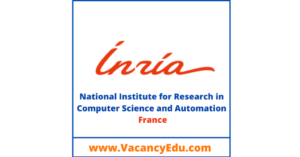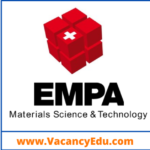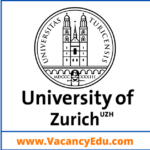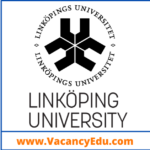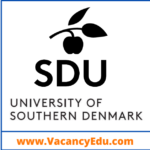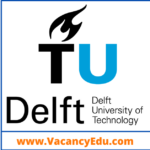Inria, France invites online Application for various Postdoctoral Fellowship in their different Departments. We are providing a list of Postdoc Fellowship positions available at Inria, France.
Eligible candidate may Apply as soon as possible.
(01) Postdoctoral Fellowship Position
Postdoc Fellowship Position summary/title: Post-Doctoral Research Visit F/M privacy preserving federated learning with applications in medical domains
This post-doctoral position will be supported by the HE Trumpet project, the HE Flute project and/or the PEPR IA Redeem project. While this position will be in the MAGNET team in Lille, we will collaborate with the several European project partners.
While AI techniques are becoming ever more powerful, there is a growing concern about potential risks and abuses. As a result, there has been an increasing interest in research directions such as privacy-preserving machine learning, explainable machine learning, fairness and data protection legislation.
Privacy-preserving machine learning aims at learning (and publishing or applying) a model from data while the data is not revealed. Notions such as (local) differential privacy and its generalizations allow to bound the amount of information revealed.
The MAGNET team is involved inthe related TRUMPET, FLUTE and REDEEM projects, and is looking for team members who can in close collaboration with other team members and national & international partners contribute to one or more of these projects. All of these projects aim at researching and prototyping algoirhtms for secure, privacy-preserving federated learning in settings with potentially malicious participants. The TRUMPET and FLUTE projects focus on applications in the field of oncology, while the REDEEM project has no a priori fixed application domain.
Deadline : 2024-12-31
(02) Postdoctoral Fellowship Position
Postdoc summary/title: Post-Doctoral Research Visit F/M Optimal control theory with applications to epidemiology
This research project is conducted in the framework of the project NOCIME (New Observation and Control Issues Motivated by Epidemiology), funded by the French National Research Agency (ANR) on the period 2024-2026 (three years). We are offering a 2-year position for a young PhD. Contracting may be immediate, and has to be achieved before January 1st, 2025.
NOCIME consortium includes researchers from Inrae (Montpellier), Inria (Paris, Lille, Metz) and IRD (Paris). The researchers in charge of the Working Package related to this position are located in Montpellier (Inrae, Campus de La Gaillarde) and Paris (Sorbonne Université). The postdoctoral supervisors are two senior researchers: Alain Rapaport (Inrae, Montpellier) and Pierre-Alexandre Bliman (Inria, Paris). The postdoctoral fellow will work mainly in Montpellier, with regular trips and contacts in Paris. Other scientific voyages (workshops, conferences) will be scheduled and funded.
Deadline : 2024-12-31
Looking for more Postdoctoral Positions Click Here
(03) Postdoctoral Fellowship Position
Postdoc Fellowship Position summary/title: Post-Doctoral Research Visit F/M Model placement in inference delivery networks
In this postdoc, we will study the problem of AI model placement in an IDN. This is a challenging optimization problem that involves a non-trivial tradeoff between model effectiveness, inference latency, and resource availability while also dealing with the natural dynamicity of the network, e.g., due to users’ request process or changes in available computing and communication resources.
We will also consider other metrics, such as energy consumption, in the objective functions and networking constraints for systems where the network presents some inelasticity (see also [1]). We will leverage multi-objective optimization techniques (e.g., Pareto efficient solutions) and transfer learning techniques to adapt models across nodes with different levels of knowledge and resource availability. We will also rely on online learning approaches to achieve model placements with adversarial guarantees regarding regret.
In comparison to our preliminary work in [2] or [3], we will allow models to be split across multiple nodes [4,5,6]. In particular, we aim to compare specific model splitting techniques, with or without the insertion of bottlenecks [7,8] (reference [8] is also the result of NEO-AIRL cooperation), in terms of performance metrics like inference delay and network load. We will evaluate different methodologies to estimate online the quality of an inference [9].
Deadline : 2024-11-30
(04) Postdoctoral Fellowship Position
Postdoc Fellowship Position summary/title: Post-Doctoral Research Visit F/M Post-doctoral in the semantics of quantum computation and graphical languages
Deadline : 2024-11-30
(05) Postdoctoral Fellowship Position
Postdoc Fellowship Position summary/title: Post-Doctoral Research Visit F/M Anonymization of a dataset based on a questionnaire survey
The Comete project team at the Inria Saclay Center specializes in security and privacy protection and has sixteen researchers (https://www.inria.fr/fr/comete). The team studies concepts emerging from the modern era of computing. Security and privacy protection are among the fundamental concerns that arise in this context: the frequent interaction between users and electronic devices, and the continuous connection between these devices and the Internet, offer malicious agents the possibility of collecting and storing a huge amount of information without users even being aware of it. In addition to security issues, issues of correctness, robustness, and reliability are made more difficult by the complexity of modern systems because they are highly concurrent and distributed. Despite being based on impressive engineering technologies, they are still prone to faulty behavior due to errors in software design. To address these challenges, the team studies formal frameworks for specifying these systems, theories for defining desired correctness and security properties, and methods and techniques for proving that a system satisfies these properties.
Deadline : 2024-11-30
Click here for “Postdoc Application Cover Letter Template”
Click here to know “How to write a Postdoc Job Application or Email”
(06) Postdoctoral Fellowship Position
Postdoc Fellowship Position summary/title: Post-Doctoral Research Visit F/M Sensitivity analysis for the repressilator gene circuit
The objective of this project is to develop and program sensitivity estimation methods for continuous-time Markov chain model of biochemical reactions inside cells that are coupled to the dynamics of growing populations. In addtion, a stochastic model of the repressilator gene circuit in bacteria will be constructed based on single-cell micoscopy data of our collaborators and the sensitivity estimation methods will be applied to this model to better understand how growth of the bacteria affects the functionality of the repressilator circuit.
Deadline : 2024-10-31
(07) Postdoctoral Fellowship Position
Postdoc Fellowship Position summary/title: Post-Doctoral Research Visit F/M Individual-based modeling of coupled single-cell and population processes
This research project aims to better understand the mechanisms related to gene expression and plasmid
copy number fluctuations in a cell population with application to synthetic biology.
Modelling gene expression has been the subject of much interest in the literature. The models proposed are generally single-cell, and based on the central dogma of molecular biology, which describes a simplified scheme whereby instructions on DNA are transcribed into messenger RNA, which in turn is translated into proteins. In this scale, the environment is often assumed to be highly invariant and the number of molecules for each protein is small and therefore subject to considerable stochasticity. These numbers of molecules are modelled using continuous-time Markov chains (CTMC). In the scale of the demography, this individual dynamics becomes rapid and can be approximated by continuous models like ODEs. In addition, it becomes essential to take into account the unequal sharing of all this molecular content at the time of cell division. This mechanism is well known to enhance the heterogeneity of gene expression at the population level. How to develop models that capture all these aspects while remaining analytically or numerically tractable is an open research question and will be the focus of this project.
Deadline : 2024-10-31
(08) Postdoctoral Fellowship Position
Postdoc Fellowship Position summary/title: Post-Doctoral Research Visit F/M Distributed Machine Learning at the Network Edge
The position is in the framework of dAIEDGE—A network of excellence for distributed, trustworthy, efficient and scalable AI at the Edge—funded by the European Union.
The vision of the dAIEDGE Network of Excellence is to strengthen and support the development of the dynamic European edge AI ecosystem under the umbrella of the European AI Lighthouse and to sustain the advanced research and innovation of distributed AI at the edge as essential digital, enabling, and emerging technology in an extensive range of industrial sectors.
Deadline : 2024-09-30
Click here to know “How to Write an Effective Cover Letter”
(09) Postdoctoral Fellowship Position
Postdoc Fellowship Position summary/title: Post-Doctoral Research Visit F/M Personalized patient follow-up
This project is based on a collaboration between Scool and a medical team at Inserm/CHU de Lille that have been active for 5 years now.
The scientific goal of this collaboration is to investigate the exploitation of data to improve patient follow-up after surgery. We model this problem as a sequential decision making under uncertainty problem.
This collaboration has already produced interesting results, in the form of a website, presentations in conference, and publications in top machine learning conferences, and top medicine journals.
Deadline : 2024-09-30
Connect with Us for Latest Job updates
(10) Postdoctoral Fellowship Position
Postdoc Fellowship Position summary/title: Post-Doctorant F/H Modélisation et schémas numériques des échanges radiatifs mesurés par un capteur infrarouge multispectral
This research work is part of the European project HORIZON CHIPS JU BRIGHTER (https://project-brighter.eu/), which focuses on the design, implementation, and study of new uncooled infrared detectors with lower thermal time constants called “Fast Pixel” (FP) or spectral functionalization at the pixel level of the detector array “MultiSpectral Pixel” (MSP). The first prototypes of infrared thermal cameras were developed in 2023 and made available to Inria and Gustave Eiffel University to conduct various R&D works. These prototypes incorporate focal plane microbolometer arrays designed by CEA and LYNRED. The camera prototypes themselves were developed by Xenics (FP) and SENSIA (MSP).
Deadline : 2024-09-30
(11) Postdoctoral Fellowship Position
Postdoc Fellowship Position summary/title: Formal Verification and Embedded Rust for Low-Power Open Source Distributed System Software
this position will focus on designing and leading the development of formally verified open source buidling blocks for a cybersercure embedded software platform : a Rust-based, general-purpose OS running on the main low-power 32-bit microcontrollers (Arm Cortex-M, RISC-V, ESP32…) in the context of the RIOT-rs project.
The approach aimed for in this project includes the use of formal verification tools uising functional Rust as speficiation language (such as hax, in partnership with Cryspen) and fostering integration of formal verification workflows in the operating system’s continuous integration processes to automate proofs on the OS as it evolves, such as in this blueprint.
For further reading, see the output of RIOT-fp, a cybersecurity research project w.r.t. which the work envisionned here will be a follow-up. The targeted low-power devices are typically connected to the network via various low-power wireless techniques (BLE, 802.15.4, LoRa…) and low-power IPv6 secure protocol stacks. Recently, new standards have been specified in this domain, including the protocols necessary for SUIT-compliance, the new state-of-the-art regarding IoT software update security. In parallel, the development and integration of various relevant or upcoming cryptographic libraries (in particular NIST contenders) has become necessary to prepare for next-generation, post-quantum attacks.
Deadline : 2024-09-30
Polite Follow-Up Email to Professor : When and How You should Write
(12) Postdoctoral Fellowship Position
Postdoc Fellowship Position summary/title: Post-Doctoral Research Visit F/M Distributed Voronoi diagrams for large-scale optimal transport
Within the framework of the COSMOGRAM project, in the PARAM project-team
- The COSMOGRAM project, currently funded by an Inria exploratory action (AeX grant)
- COSMOGRAM aims at developping new geometric methods for computational cosmology
Deadline : 2024-09-30
(13) Postdoctoral Fellowship Position
Postdoc Fellowship Position summary/title: Post-Doctoral Research Visit F/M Postdoctoral position in Quantum Information Theory
The research project will explore quantum protocols based on the concept of quantum nonlocality and quantum networks (see arXiv:2104.10700). A non-exhaustive list of potential projects is:
- Methods for characterizing quantum correlations beyond the Bell scenario:
- mathematical foundation of these methods (C* algebras, noncommutative polynomial optimization): see e.g. arXiv:2210.09065, arXiv:2212.11299, arXiv:2301.12513
- improve/find new algorithms for characterizing these correlations
- numerical developpement of these algorithms, see e.g. arXiv:2211.04483
- Understanding the foundational implications of quantum correlations in networks, see e.g. arXiv:2101.10873 and arXiv:2105.09381
- Develop the applications of network nonlocality to certification protocols, such as
- randomness generation: arXiv:2209.09921
- self testing of measurements and states: arXiv:1807.04956, arXiv:2201.05032
- Adapt existing protocols for their experimental implementation
- Develop practical benchmarks of the concept of ‘Genuine Multipartite Nonlocality’ introduced in arXiv:2105.09381
- Develop SDP relaxations for condensed matter problems, see e.g. arXiv:2212.03014, arXiv:2310.05844, arXiv:2311.18707, arXiv:2311.18706
- Explore the limits of quantum distributed computing, see e.g. arXiv:1810.10838, arXiv:0903.113
Any other suggested research project in quantum information theory can be discussed (both from the physics, the computer science or the mathematical viewpoint).
Deadline : 2024-09-30
(14) Postdoctoral Fellowship Position
Postdoc Fellowship Position summary/title: Post-Doctoral Research Visit F/M Exploring Logic Programming semantics via a connection to Boolean Networks through Petri nets.
Deadline : 2024-09-30
(15) Postdoctoral Fellowship Position
Postdoc Fellowship Position summary/title: Post-Doctoral Research Visit F/M conversational agents with interpersonal skills
Some prior work has addressed making conversational agents more polite, more “playful” and even more flirtatious. But for the most part these attempts have relied on repetitive fixed behaviors that do not adapt to the listener’s behavior. Similarly, other prior work has attempted to give conversational agents a personality, but in many cases – including ChatGPT personas – these attempts seem to rely on old-fashioned or folk theories of personality and, once again, have not developed personality traits that adapt to the interlocutor.
There is therefore a need for models of interpersonality that can be implemented into embodied conversational agents in order to allow them to optimize their collaboration with their human users by recognizing the user’s conversational style, personality, and behaviors and adapting over the course of one or several conversations.
Deadline : 2024-09-30
(16) Postdoctoral Fellowship Position
Postdoc Fellowship Position summary/title: Post-Doctorant F/H ANIS – Acquisition Numérique In-Situ et restitution de l’apparence d’objets patrimoniaux tridimensionnels
Les techniques d’acquisition de l’apparence sont développées depuis de nombreuses années par les instituts nationaux de métrologie, ainsi que par des équipes universitaires dans des laboratoires d’optique ou, depuis les années 2000, dans des laboratoires d’infographie (Bonn, MIT Media Lab) ou de vision par ordinateur (e.g., UCL). Bien que ces instruments [1, 2] s’améliorent constamment en termes de précision de mesure, ils restent limités à certains égards : (i) vitesse de mesure lente, (ii) petite taille d’échantillon (quelques cm2) et (iii) apparence restreinte (projets prédominants BRDF [1] et BTDF radiométriques [2]). Surtout, elles ne sont pas conçues pour une acquisition in situ.
Or, les objets du patrimoine sont rarement transportables en laboratoire (en raison de contraintes telles que les questions juridiques, la taille, le poids, la conservation, l’accessibilité, …). Les dispositifs issus de l’Informatique Graphique ou de la vision 3D peuvent être plus rapides [3, 4]) et portables [5, 6] mais ils ne sont pas validés en termes de métrologie. L’un des principaux défis de l’acquisition in situ est le nombre de mesures qui peuvent être réalisées dans les limites des contraintes. Une solution consiste à concentrer l’acquisition sur un sous-ensemble d’informations bien identifiées de manière non invasive. La méthode non invasive se traduit par des systèmes optiques.
Deadline : 2024-09-17
Top 25 Free Statistical Analysis Software 2024
(17) Postdoctoral Fellowship Position
Postdoc Fellowship Position summary/title: Post-Doctoral Research Visit F/M Unsupervised Machine Learning for Wireless Communications
The successful candidate will contribute to the development of advanced machine learning approaches for the processing of real-time signals in wireless communications systems, and in particular of the technique of channel charting [FGST23]. She or he will devise innovative theoretical approaches for distributed, real-time dimensionality reduction applied to multi-sensor systems; prototype these approaches trough simulations and/or lab experiments; write technical reports and articles for major conferences and journals in the field of wireless communications and machine learning; and regularly present the obtained results in scientific conferences and events.
Deadline : 2024-09-14
(18) Postdoctoral Fellowship Position
Postdoc Fellowship Position summary/title: Post-Doctoral Research Visit F/M Post-doc in formal verification
The research project will be about formal verification and testing of real-time systems using timed automata and techniques from game theory, reinforcement learning, temporal logics, automata learning etc.
More specifically, we will explore reinforcement learning techniques to develop black-box testing algorithms for timed automata.
We require from the candidate to have a strong background and several papers on timed automata in top conferences.
Deadline : 2024-09-11
(19) Postdoctoral Fellowship Position
Postdoc Fellowship Position summary/title: Post-Doctoral Research Visit F/M EICACS
The required research includes in-depth analysis of selected software libraries. Specific metadata information associated to each software under investigation needs to be identified and registered, including cybersecurity risks related to the usage of each software library.
Based on relevant state- of- the- art, preliminary ideas how to support the mitigation of cognitive biases – included in a speech and data processing environment that is used intelligence analysis.
Some other directions that the research can contribute concerning speech processing are :
- Speaker verification using machine learning model
- Knowledge reasoning for semantic audio segmentation
Additionally, testing of Artificial Intelligence functions and libraries may be required. An investigation of frameworks and models will be conducted to identify the accurate framework that can ensure the future model of the system. The challenges of the autonomous environment will be analyzed to provide an accurate solution concerning the needs defined in the project. This will involve editing and modifying the software libraries so that to assure the needs of the project.
Deadline : 2024-09-01
How to increase Brain Power – Secrets of Brain Unlocked
(20) Postdoctoral Fellowship Position
Postdoc Fellowship Position summary/title: Post-Doctoral Fellow M/F Joint modeling of disease progression and event occurrence
The objective of the position is to develop, implement, test and validate statistical learning methods that make it possible to model and predict the progression of neurodegenerative diseases and the occurrence of events.
Deadline : 2024-08-31
(21) Postdoctoral Fellowship Position
Postdoc Fellowship Position summary/title: Post-Doctoral Research Visit F/M Post-doctoral position in mathematical and/or computational biology: Multiscale modeling of single cell-based dynamics of ovarian development
The position is an opportunity to be involved in a strongly interdisciplinary consortium, and to strengthen experience in mathematical and computational biology by working on the embedding of single cell spatial data within a multiscale modeling framework.
Deadline : 2024-08-31
(22) Postdoctoral Fellowship Position
Postdoc Fellowship Position summary/title: Post-Doctoral Research Visit F/M Stochastic modelling of oceanic flow, small-scale dynamics, wave-current interaction
The Odyssey team is offering a 18 month postdoc position on ocean modelling within the ERC Stuod (Stochastic transport in ocean dynamics). Odyssey (for Ocean DYnamicS obSErvation analYsis) is a recently created team involving researchers from Inria (Rennes, France), Ifremer (Brest) and IMT Atlantique (Brest).
Inria is one of the leading research institute in Computer Sciences in France, and Odyssey is also affiliated to the mathematics research institute of the Rennes University (IRMAR).
The team expertise encompasses mathematical (stochastic) and numerical modelling of ocean flows, observational and physical oceanography, data assimilation and machine learning.
Gathering this large panel of skills, the team aims at improving our understanding, reconstruction and forecasting of ocean dynamics, and more specifically to bridge model-driven and observation-driven paradigms to develop and learn novel representations of the coupled ocean-atmosphere dynamics ocean models.
Deadline : 2024-08-31
(23) Postdoctoral Fellowship Position
Postdoc Fellowship Position summary/title: Post-Doctoral Research Visit F/M Interpretable Classifier based on Multi-Modal Embeddings for rare classes: Application to identification of marine ecosystems
Deadline : 2024-08-31
(24) Postdoctoral Fellowship Position
Postdoc Fellowship Position summary/title: Post-Doctoral Fellow M/F Recalibration of anatomical volumes for the segmentation and reduction of bone fractures
Shape registration is a fundamental task in digital anatomy, and more generally in imaging. The vast majority of methods used to solve this problem are based on an a priori of regularity of the deformation between source image and target image, imposed explicitly for classical approaches and implicitly for deep learning methods. This modeling choice reaches its limits when the images present violent anomalies that cannot be explained by simple elastic deformations: fractures, tumors, ischemia, etc.
We propose to overcome this problem by deepening the study of registration methods based on large-dimensional “features” (“functional maps”) to make them robust to tears and the disappearance of certain pieces of the anatomical “puzzle”. This will involve synthesizing methods developed in the computer graphics and medical imaging communities.
From a mathematical point of view, this project is part of the Parisian dynamic around the analysis of shapes to which Jean Feydy has contributed since 2015. From a medical point of view, this work is part of the REBONE university hospital research project (RHU) on the analysis of multiple fractures (2024-29, €25M). Our data will come from the Pasteur hospital in Nice and the Cochin hospital in Paris, with whom the HeKA team maintains close ties.
Deadline : 2024-08-31
(25) Postdoctoral Fellowship Position
Postdoc Fellowship Position summary/title: Post-Doctorant F/H Post-Doctorant F/H Visualisation des parcours de soins pour le health-data-hub
Dans le cadre d’un partenariat avec le health-data-hub
L’objectif du postdoctorant sera de spécialiser et d’appliquer le système ParcoursVis à l’analyse des parcours de patients pour des pathologies particulières.
ParcoursVis est destiné aux spécialistes de santé (médecins, administrateurs de santé, etc.) et se généralise à plusieurs pathologies. C’est un système de visualisation fonctionnant à partir d’un navigateur standard, ne nécessitant aucune installation logicielle, et qui communique avec un serveur distant, hébergé par le health-data-hub.
Deadline : 2024-08-31
(26) Postdoctoral Fellowship Position
Postdoc Fellowship Position summary/title: Post-Doctoral Research Visit F/M Event detection for Large-Scale Physical Simulations
While artificial intelligence is growing at a fast pace, the bulk of the world’s computing power remains targeted at modeling and predicting physical phenomena, such as climate models, weather forecasting, or nuclear physics. These simulations are run on highly parallel supercomputers on which both the hardware and the software are optimized for the task at hand. While the computing power of each processing unit is still increasing, the communication networks and the storage capabilities in these clusters do not follow such fast trends. As a result, computing nodes produce outputs faster than what can be stored or sent to process elsewhere: These simulations are IO-bound.
Deadline : 2024-08-31
(27) Postdoctoral Fellowship Position
Postdoc Fellowship Position summary/title: Post-Doctoral Research Visit F/M Modeling and simulation of the heart hemodynamics
The objective of this research project is de develop a mathematical model and asociated numerical methods for the simulation of the hemodynamics in the four cavities of the heart. The main motivation of this work is driven by the developement of a simulation tool to simulate patohological scenarios, such as the Hypoplastic Left Heart Syndrome (HLHS), and numerically asses different surgicals options. This work will be performed in the framework of the MEDITWIN project, which involves a collaboration beetwen COMMEDIA projec-team, Dassault Systèmes and SIMBIOTX project-team.
Deadline : 2024-08-31
(28) Postdoctoral Fellowship Position
Postdoc Fellowship Position summary/title: Post-Doctoral Research Visit F/M Mesh adaptation for nonlinear dispersive wave propagation
Starting from the tsunamis free surface water displacement and flow velocity fields which will be known, we will consider using the Boussinesq model UHAINA for simulating propagation and inundation phases. UHAINA [1], is an operational hydrodynamic model, combining high-order solutions (mandatory for a correct representation of dispersion), unstructured meshes and a HPC-devoted programming environment able to deal with the requirement of a real area. UHAINA also offers rapid development capabilities to integrate new approaches (mesh adaptation and embedded approach, see hereafter) to improve tsunami simulation. Static meshes, despite being refined a-priori around the coastline, are inherently not efficient for tsunami simulations where an impulsive wave is initially concentrated in a narrow region and then propagates over a certain distance. Mesh adaptation techniques have proved their efficiency in improving numerical accuracy while reducing the overall computational cost in many scientific domains. Several adaptive strategies have already been deployed for shallow water flows, including tsunami applications: hierarchical mesh refinement [3,4], unstructured re-meshing [3,5] and r-adaptation [6]. In contrast with [6], where the mesh vertices were moved but the connectivity remained fixed, we will investigate metric-based mesh adaptation, where the domain is entirely remeshed in order to optimize both the elements size and orientation. This allows us to change the global number of vertices throughout the simulation when the waves are expanding in the domain. Vertices can be moved between two remeshings to fine tune their location if needed. This sub-task will involve the coupling of the MMG remeshing software with UHAINA. Mesh adaptation full capabilities can only be leveraged when trying to generate the best possible mesh for a given computation: mesh adaptation is then seen as a process to minimize a certain well-chosen error. Driven by this minimization, one expects the simulations to be noticeably more accurate, and even to emphasize flow details usually neglected by standard refinement procedures. The error model is thus key in the adaptation process. We will first evaluate the performance of classic interpolation error based on indicators developed in the continuous mesh framework [2]. However, the dispersive regularization of the SWE results in more regular solutions, for which classic error models may be limited. A key point of the project will be to propose error estimators well suited for non-linear dispersive wave propagation. To our best knowledge, such an error model would be completely novel. In particular, local smoothness of the solution will first be considered, then we will study phase errors and ways to control them. We have to highlight that, up to the authors’ knowledge, mesh adaptation for dispersive wave propagation is, up to now, only limited on structured meshes [4,7] and this will be the first time unstructured meshes will be used. Once the adaptive process has been validated on academic test cases, we will run large scale simulations of tsunamis in a realistic setting.
Deadline : 2024-08-31
(29) Postdoctoral Fellowship Position
Postdoc Fellowship Position summary/title: Post-Doctoral Research Visit F/M Faster Bilevel Optimization to Accelerate Machine Learning
While many important and timely machine learning problems are framed as bilevel optimization, how to solve these problems efficiently is still an open problem for the community. As a result, developing better bilevel optimization algorithms has a ripple effect by accelerating research in all areas based on bilevel formulations. The general goal of this project is to develop new algorithms for bilevel
optimization that are faster, easier to use, and more scalable. These new algorithms will then be applied to advance the relevant applications of bilevel optimization in machine learning.
Deadline : 2024-08-31
(30) Postdoctoral Fellowship Position
Postdoc Fellowship Position summary/title: Post-Doctorant F/H Generation of connectivity models, application to population connectivity studies
The main goal of this project is thus to develop a generative approach for covariance models that is consistent with the Riemannian framework for connectivity modeling in fMRI [8]. We will learn to generate such samples from large populations and to fine-tune models for smaller populations. We will then assess the quality of the generated samples using a variety of metrics (authenticity, coverage, recall, GAN-train, GAN-test). Finally, we will evaluate the utility of the generative approach on longitudinal and cross-sectional connectivity-based diagnostic problems.
Deadline : 2024-08-31
(31) Postdoctoral Fellowship Position
Postdoc Fellowship Position summary/title: Post-Doctoral Fellow M/F Mathematical foundations of topological data analysis for machine learning.
The recruited person will be required to design and experiment with mathematical tools and techniques, based on approaches combining topology and statistical learning, for the analysis and processing of complex data. This will involve developing and experimenting with techniques that come with solid mathematical guarantees that must be rigorously established and will make it possible to learn the topological characteristics of data and automatically generate data with prescribed geometric and topological characteristics.
Deadline : 2024-08-30
(32) Postdoctoral Fellowship Position
Postdoc Fellowship Position summary/title: Post-Doctoral Research Visit F/M Protection of personal and sensitive data based on trusted computing
The postdoctoral researcher will work in collaboration with the PETSCRAFT and PRIVATICS project teams at Inria and will be hosted at Inria Saclay in Palaiseau.
Two main tasks will be assigned to her:
Firstly, she will design and integrate a trusted computing support solution into the DARC platform to allow partners (industrial, governmental organizations, etc.) to securely provide sensitive data samples to the platform, with guarantees of data confidentiality (including from the administrators of the platform), in order to test the robustness of the sample against state-of-the-art data reidentification algorithms.
Secondly, she will collaborate on the design and implementation of service-oriented data management solutions based on trusted computing components, in order to (1) ensure protection against data leaks in the presence of bugs in the codes running in secure enclaves and (2) consider a generic solution for securing specific services allowing the confidential handling of personal data to enable the development of software solutions of the “PETs” (privacy enhancing technologies) type as services usable by application developers.
Deadline : 2024-08-30
(33) Postdoctoral Fellowship Position
Postdoc Fellowship Position summary/title: Post-Doctoral Research Visit F/M Deep generative models for robust and generalizable audio-visual speech enhancement
This postdoctoral research is part of the REAVISE project: “Robust and Efficient Deep Learning based Audiovisual Speech Enhancement” (2023-2026) funded by the French National Research Agency (ANR). The general objective of REAVISE is to develop a unified audio-visual speech enhancement (AVSE) framework. This will leverage recent breakthroughs in statistical signal processing, machine learning, and deep neural networks to create a robust and efficient AVSE system.
Deadline : 2024-08-18
(34) Postdoctoral Fellowship Position
Postdoc Fellowship Position summary/title: Post-Doctoral Research Visit F/M Identification robotique des paramètres musculaires
The aim of this project is to develop new methods for muscle parameters identification, using robotics platforms. The ambition is to tackle this still open issue using an innovative experimental setup and dedicated estimation and control algorithms developed in a unified framework.
The development of accurate and personalized NMSK models is essential for changing paradigms of rehabilitation and interactions involving assistive devices. One of the main challenges is to identify these models parameters [1]. Efficient robotics approaches have been developed [2], that do not generalize to human models as they do not address muscular and cellular parameters identification.
In this project, we want to address muscle parameters identification thanks to a unique setup combining the computation of precise parameter-exciting trajectories [3] and the use of robots as position and force sensors, in contact with the patient’s body. Their precise kinematics and embedded force sensors make them perfect experimental platforms to quantify body motions and adapt the model’s parameters based on their measurements. We plan to develop a formulation that will combine, in a single real-time optimization problem, the estimation of the user-specific NMSK parameters and the computationof the future exciting movements of the upper limb, in order to guarantee a good observability of the parameters of interest. Implemented as a combination of a sliding window estimator and a nonlinear model predictive control algorithm [4], the relevance of this approach lies in the exploitation of the fact that the same dynamical system is controlled and estimatedat the same time [5]. This unified formulation will ensure the sensitivity of the variables to be estimated with respect to the control variables
Deadline : 2024-08-18
(35) Postdoctoral Fellowship Position
Postdoc Fellowship Position summary/title: Post-Doctoral Fellow M/F Game Theory for Distributed Flexibility Control and Decentralized Energy Markets
Deadline : 2024-08-13
(36) Postdoctoral Fellowship Position
Postdoc Fellowship Position summary/title: Post-Doctoral Research Visit F/M Post-doc position in statistical machine learning
The post-doc will be part of the Thoth team, which is specialized in computer vision and machine learning, and will be supervised by Julien Mairal.
The post-doc will work at the Inria Rhône-Alpes research center near Grenoble. The unit includes more than 600 people, within 26 research teams and 10 support services. Grenoble is a lively city which hosts many foreign students and researchers. Located in the heart of the French Alps its direct surroundings offer great outdoor recreation including skiing, cycling, and hiking. Grenoble is well-connected to Lyon and Geneva airports and Paris can be reached from Grenoble in 3h by train.
Deadline : 2024-08-11
About The National Institute for Research in Computer Science and Automation (Inria), France –Official Website
The National Institute for Research in Computer Science and Automation (Inria) is a French national research institution focusing on computer science and applied mathematics. It was created under the name Institut de recherche en informatique et en automatique (IRIA) in 1967 at Rocquencourt near Paris, part of Plan Calcul. Its first site was the historical premises of SHAPE (central command of NATO military forces), which is still used as Inria’s main headquarters. In 1980, IRIA became INRIA. Since 2011, it has been styled Inria.
Inria is a Public Scientific and Technical Research Establishment (EPST) under the double supervision of the French Ministry of National Education, Advanced Instruction and Research and the Ministry of Economy, Finance and Industry.
Disclaimer: We try to ensure that the information we post on VacancyEdu.com is accurate. However, despite our best efforts, some of the content may contain errors. You can trust us, but please conduct your own checks too.
Related Posts
- Postdoctoral Fellowship (36) at Harvard University, United States

- Postdoctoral Fellowship (03) at EMPA, Zurich, Switzerland

- Postdoctoral Fellowship (14) at University of Zurich, Switzerland

- Postdoctoral Fellowship (04) at Maastricht University, Netherlands

- Postdoctoral Fellowship (09) at Groningen, Netherlands

- Postdoctoral Fellowship (05) at Linkoping University, Sweden

- Postdoctoral Fellowship (17) at University of Southern Denmark, Denmark

- Postdoctoral Fellowship (28) at University of Cambridge, United Kingdom

- Postdoctoral Fellowship (13) at Delft University of Technology (TU Delft), Netherlands


